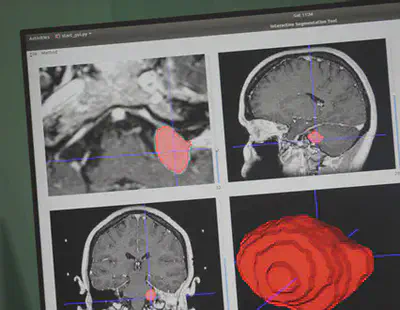PhD opportunity on "Data-driven composite biomarker development for the personalised management of vestibular schwannoma"
This project aims to develop and validate deep learning models to predict, from MRI and clinical data, which tumours are likely to grow and require treatment. Thestudent will be able to focus on designing novel radiomics analysis for vestibular schwannoma while exploiting an existing fully-automated AI tumour segmentation framework. This will enable clinicians to deliver personalised and standardised management plans to individual patients and has the potential to significantly reduce the number of required surveillance scans.

Vestibular schwannoma (VS) is a non-cancerous tumour arising from one of the balance nerves connecting the brain and inner ear. Approximately 1 in 1000 people will be diagnosed with a VS in their lifetime. For patients with smaller tumours, lifelong observation with repeated scans is advised but timely treatment is crucial in patients with growing tumours.
The workplan will be balanced along the methodological/translational axis depending on the student’s background. In Year 1, the student will learn modern image-registration and domain-adaptation methods to curate a complete dataset of magnetic resonance (MR) images using the patient’s available sequences. Year 2 will include the investigation of radiomic data extraction and automated tumour classification methods using machine learning. In Year 3/4, the student will develop a data-driven deep learningframework combining longitudinal clinical and imaging data to create a composite predictive biomarker of VS growth.
During their research training, the student will receive specialised training in modern deep learning approaches and will acquire an in-depth understanding of how to translate these methods in clinical applications.
1st Supervisor: Jonathan Shapey, King’s College London
2nd Supervisor: Tom Vercauteren, King’s College London
More information about the PhD project here.